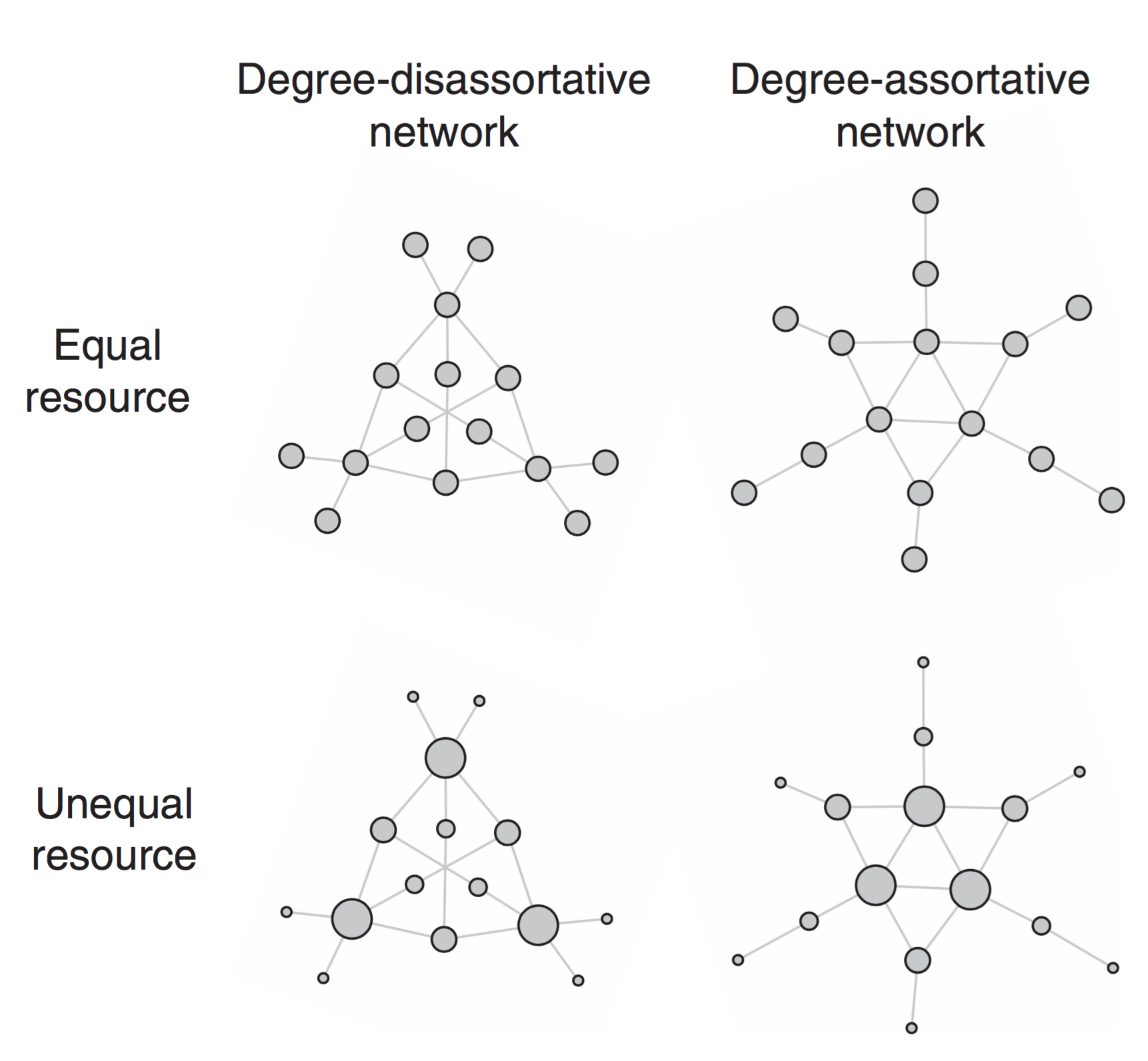
Assortative mixing and resource inequality enhance collective welfare in sharing networks
Abstract
Resource sharing can impose an economic trade-off: one person acquiring resources may mean that another cannot. However, if individuals value the social process itself that is a feature of economic exchanges, socio-structural manipulations might improve collective welfare. Using a series of online experiments with 600 subjects arrayed into 40 groups, we explore the welfare impact of two network interventions. We manipulated the degree assortativity of the groups (who were engaged in resource sharing) while keeping the number of people and connections fixed. Distinctly, we also manipulated the distribution of sharable resources by basing endowments on network degree. We show that structural manipulation (implementing degree assortativity) can facilitate the reciprocity that is achievable in exchanges and consequently affect group-level satisfaction. We also show that individuals are more satisfied with exchanges when each node is endowed with resources that are proportional to the number of potential recipients, which again facilitates reciprocity. Collective welfare in settings involving resource sharing can be enhanced without the need for extra resources.
Citation:
H. Shirado, G. Iosifidis, and N. A. Christakis, “Assortative mixing and resource inequality enhance collective welfare in sharing networks,” PNAS, 116(45): 22442-22444 (Oct 2019) DOI: 10.1073/pnas.1911606116